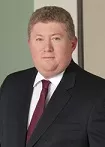The IRS is ramping up collections, examinations, and audits of wealthy Americans and their large partnership companies as part of a crackdown that may affect financial advisors' clients.
A funding hike of more than $45 billion, or 69%, for enforcement over the next decade thanks to last year's Inflation Reduction Act gives the agency the ability "to ensure the IRS holds our wealthiest filers accountable to pay the full amount of what they owe," Commissioner Danny Werfel said in a statement last week. The agency called the new enforcement a "sweeping effort to restore fairness" to the tax system and "shift attention" to the wealthy from the working class.
. . .
"Unquestionably, there's always unfairness in the tax system," said Niles Elber, a Member in Caplin & Drysdale's Washington, D.C. office who has more than two decades of experience litigating civil and criminal tax cases. "Wealthy people hire lawyers who go in and deal with the Internal Revenue Service on their behalf. When you don't have the resources to do that and the IRS is coming after you, it's very tough to fight back."
. . .
Stilted negotiations around a potential government shutdown when the current federal funding expires at the end of the month could affect the way that the IRS deploys the technology and the overall program, too, according to Elber. The technology could help the agency "unravel the inner workings of these partnerships," he said, describing their structures as "incredibly opaque" in some cases yet "fairly common" in the tax and wealth management industries alongside other pass-through entities such as LLCs and S-corporations.
"I think it is a bit frightening because I don't know that the technology is advanced enough," Elber said. "Financial advisors are going to work with people who have money. People who have money tend to have these structures."
To view the full article, please visitFinancial Planning's website(subscription required).
This article is designed to give general information on the developments covered, not to serve as legal advice related to specific situations or as a legal opinion. Counsel should be consulted for legal advice.

